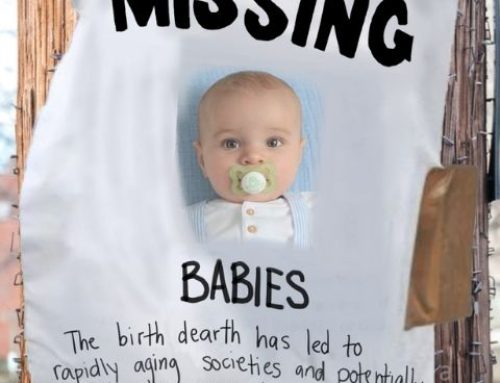 Two leaders of the international pro-life movement, who have more than three-quarters of a century of pro-life experience between them, will be in Ottawa Oct. 28-30 for the Building a Global Culture of Life conference.
Two leaders of the international pro-life movement, who have more than three-quarters of a century of pro-life experience between them, will be in Ottawa Oct. 28-30 for the Building a Global Culture of Life conference.
Dr. Jack Willke, president of the International Right to Life Federation, began working in the pro-life movement in 1971. John Smeaton, national director of the Society for the Protection of Unborn Children, joined the organization in 1974.
Willke, a medical doctor and renowned speaker, who served as president of the National Right to Life Committee, founded the IRLF in 1984 and has been its president since. He is also president of the Life Issues Institute.
Willke describes himself as “one of the pioneers” of the movement, becoming involved before the landmark Roe v. Wade decision in 1973. He and his wife Barbara lectured on sexuality in the 1950s, and, as he told The Interim, it “sort of morphed into abortion” by the 1970s. In 1971, the Willkes wrote the Handbook on Abortion, which has been constantly in print since, in eight editions, and translated into numerous languages. He is the author of four other books: Abortion and Slavery, History Repeats, Assisted Suicide & Euthanasia, Past & Present, and Abortion, Questions and Answers: Why Can’t We Love Them Both. He is currently working on an autobiography and is completing his comprehensive history of the pro-life movement in the United States and Canada over the past 56 years.
He produced a daily five-minute radio program carried on nearly 400 radio stations for 18 years in the United States, and his one-minute commentaries (called Life Jewels, and broadcast in both English and Spanish) were featured on more than 1,000 radio stations around the world. He gave speeches in more than 80 countries, almost always travelling with wife, Barbara. Due to declining health, the couple’s last planned foreign trip will be the Ottawa international conference.
Despite the exhaustive schedule of working on behalf of the unborn, Willke also practiced medicine for 40 years as the senior attending staff of the Providence and Good Samaritan hospitals in Cincinnati, Ohio.
Asked how he originally became involved in the movement, Willke joked, “kicking and screaming.” He says he cannot “pick out one thing or another” but that he knew that he had to become involved as soon as he became aware of the “killing of the unborn.”
He said he knew early on that the battle against abortion was “two-pronged” – that it was necessary to “help the mother” and “to preserve the baby’s life.”
John Smeaton joined SPUC in the mid-1970s, became its general secretary in 1978 and its national director in 1996. He sounded a lot like Willke when identifying why he chose pro-life work: “Once I became aware that unborn children were being killed, and it was as plain as a pikestaff to me that these were my brothers and sisters, I instantly recognized that this was the most important human rights issue of the day and possibly ever in history, because of the sheer scale of the killings.” He has been active ever since. Smeaton has worked primarily in the United Kingdom and the United Nations, coordinating more than 150 pro-life and pro-family groups to help score pro-life victories at UN conferences in Cairo, Istanbul and Rome. He also lobbied delegates at the infamous Beijing Women’s conference, which considered declaring abortion an international human right – a proposal that ultimately did not pass.
In 2005, Smeaton was elected a vice president of the International Right to Life Federation. He has also spoken all around the globe. One message Smeaton is not afraid to give is that the pro-life movement has been let down by the Christian churches and their members. “I think we need to recognize the world over that it isn’t simply a matter of pro-abortion organizations being more powerful than pro-life organizations,” he told The Interim, “its also a matter of the community from which the pro-life movement draws its strength having itself turned its back on pro-life values.” He said Christian pro-lifers all too often are “themselves engaging in the culture of death, wittingly or unwittingly, principally through the use of abortifacient birth-control drugs and devices.” He said “this is dramatically drying up the sources from which the pro-life movement draws its strength … (because) we will not have the integrity, the energy, the necessary consistency to fight our openly anti-life opponents.”
But it is not only the congregants, but the Christian church leadership that is also “involved in the culture of death, by either they’re silence on birth control drugs and devices, or by they’re active co-operation with their distribution, or I should say, by giving people access to them.” He notes that in Britain Catholic schools have welcomed agencies that “provide access to children under the age of consent with abortions and with birth-control drugs and devices.”
Asked about the challenges facing the pro-life movement today, Willke replied, “we have an entire culture pretty much arrayed against us,” although he thought the battle “is slowly going our way.” He noted that recent polls show more than half of Americans consider themselves pro-life and suggested that perhaps this is a result of pro-abortion women having about one less child on average than pro-life women. He also says that with millions of women having gone through abortion, “the very experience of abortion is ultimately going to be its death knell,” as they share their abortion experiences and encourage their daughters not to make the same mistakes.
Willke concluded his Interim interview by noting, “I remain a perennial optimist. I always have been, I will be, and will continue to be. This is an issue I believe a hundred years from now our successors will look back and wonder what all the fuss was about” – and in a note that betrays his optimism, he adds “if our countries survive, and that’s a big ‘if’.”
– With files from Joseph Jalsevac




